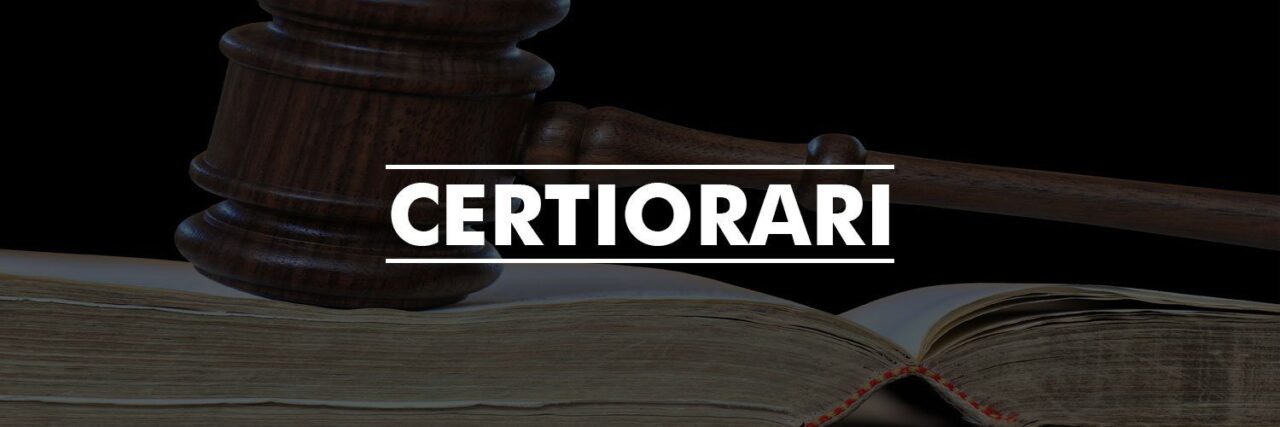Title: LT COL PRAVAL PETER RETD & ORS. versus UNION OF INDIA & ORS.
Reserved on: 14th July, 2023
Pronounced on: 18 th July, 2023
+ W.P.(C) 3042/2023 & CM APPL. 11815/2023
CORAM: HON’BLE THE CHIEF JUSTICE MR. JUSTICE SATISH CHNADRA SHARMA
HON’BLE MR. JUSTICE SANJEEV NARULA
Introduction
Delhi High Court Dismissed the writ of certiorari and granted petitioner liberty to argue their matter before Armed forces tribunal, Keeping in mind the principles outlined in the judgment of Squadron Leader Neelam Chahar and also keeping in mind a more prudent redressal path for petitioner which is more efficient and effective.
Facts of the case
The petitioners, who were ‘premature retirees’ from the Indian Army and Air Force, held Permanent Commissions before their early retirement. According to them, their retirement pension and other perks were Due to their failure to fulfil the required twenty years of service, which is a requirement for getting a full pro-rata service pension, it was unjustly denied to them.
The Petitioners were allegedly forced to retire early after successfully completing 10 years of service, but before reaching the twenty-year milestone, due to reasons beyond their control. Despite the fact that this early exit was approved by the appropriate authority, the petitioners argued that the respondents had conveniently ignored the pre-commissioning military training and reserve service periods, which when taken into account would total more than the required twenty years of service for the grant of a service pension. They should be qualified for the pension because these periods were essential and contributed to their overall service time.
The Petitioners demand service pension, even on a pro rata basis, due to them on reason of their early retirement, based on the afore-noted inconsistencies in computation of their service periods and application of criteria for providing benefits to them.
They had previously filed a writ petition [W.P.(C) 11893/2021], but due to the nature of the reliefs requested, it was rejected by order dated October 22, 2021, with the liberty to continue agitating the subject by launching a public interest lawsuit [“PIL”].
Petitioners elucidated their personal interest in the matter and urged the Court to consider their case within the ambit of the aforesaid writ petition, rather than as a PIL.
The policy dated February 19, 1987, which reportedly served as the basis for Respondents’ decision to deny benefits of pro-rata pension and other benefits like pension commutation and ex-servicemen status, was among the policies that Petitioners sought to have declared invalid in the instant petition in the nature of a PIL. They also sought a writ of certiorari to overturn the existing policy, non-statutory pension regulations, and other related instructions.
Analysis of the court
According to Regulation 34 of the Pension Regulations for the Army, 2008, which stipulates a minimum qualifying service of twenty years as a prerequisite for officers to receive service or retiring pension, the impugned communication, dated April 24th, 2019, cited in the aforementioned prayer clause, is Respondents’ decision.
Respondents claim that because the Petitioners are considered premature retirees, they are not eligible to benefit from Ministry of Defence policy dated 19th February, 1987.
It is important to emphasise at this point that the Petitioners fall under the purview of the Armed Forces Tribunal Act, 2007, and have access to a specialised forum for airing their complaints, the Armed Forces Tribunal (the “AFT”). However, the Petitioners opted to file a writ petition before this Court given to the ambiguity surrounding AFT’s ability to consider issues about the constitutionality of subordinate legislations, including rules, regulations, notices, and circulars.
Fortunately for the Petitioners, a recent decision by the full bench of this Court in Squadron Leader Neelam Chahar v. Union of India and Others, W.P.(C) 9139/2019, has clarified the issue surrounding the competence of the AFT to entertain petitions challenging circulars, statutory rules, regulations, and policies. The court held that the Armed Forces Tribunal is competent to hear the challenge to the vires of the subordinate legislations, rules, regulations, notification.
We feel that the AFT, given its specialised character, would provide a more swift determination for the Petitioners’ complaints given the recent clarification provided by the judgement mentioned above and taking into account the larger circumstances. There is no question that the Petitioners have a direct, personal interest in the issue, which usually precludes using a PIL. We are also aware that the petitioners who filed the current PIL did so with the freedom provided by a coordination bench, and that their perception of our decision to refer their case to the AFT may be unjust given that they have been exploring legal options since 2021 without receiving any redress.
However, our understanding relating to the jurisdiction of the AFT, has evolved in the wake of the judgment referenced above. Therefore, it becomes prudent to steer the Petitioners towards a path of redressal that is more fitting, efficient, and effective i.e., the AFT.
The current PIL is dismissed, together with any related ongoing petitions. The Petitioners are given the freedom to express the complaints made in their petition before the Armed Forces Tribunal while keeping in mind the guidelines provided in the aforementioned Squadron Leader Neelam Chahar judgement.
“PRIME LEGAL is a full-service law firm that has won a National Award and has more than 20 years of experience in an array of sectors and practice areas. Prime legal fall into a category of best law firm, best lawyer, best family lawyer, best divorce lawyer, best divorce law firm, best criminal lawyer, best criminal law firm, best consumer lawyer, best civil lawyer.”
Written By – Shreyanshu Gupta


